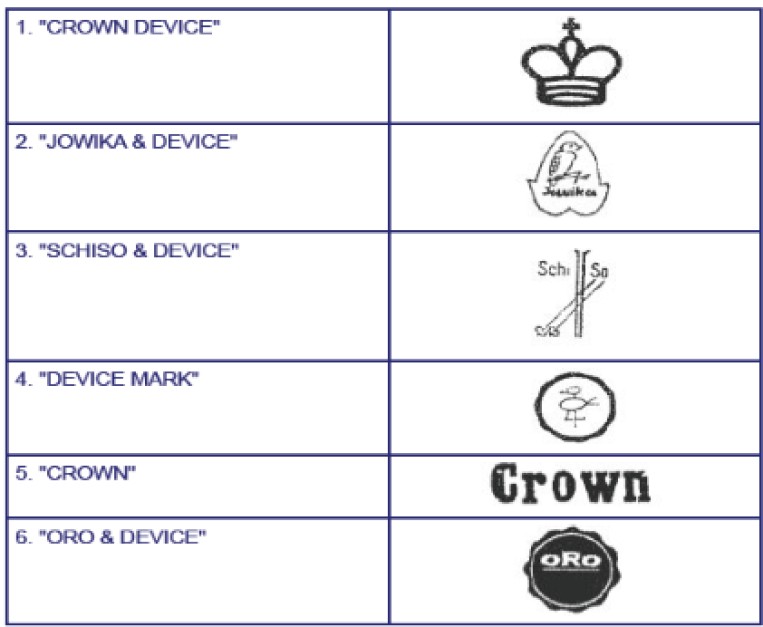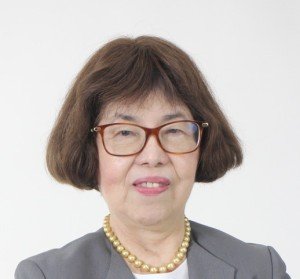Bad faith as grounds for rejecting a trademark application
30 November 2024

The IP Code of the Philippines does not expressly specify bad faith as a ground for rejecting trademark applications or a finding of infringement or unfair competition. However, in prosecuting trademark applications, Memo Circular No. 2023-001 entitled Rules and Regulations on Trademarks, Service Marks, Trade Names and Marked or Stamped Containers of 2023 Replacing the Revised Trademark Regulations of 2017, which took effect in February 2023 is important. Under Rule 603 of said rules, “If during the examination of the application, the Office finds a factual basis to reasonably doubt the veracity of any indication or element in the application, the Examiner may require the applicant to submit sufficient evidence to remove the doubt. This evidence may be in the form of a sworn statement of ownership and/or affidavit of good faith, among others.” In the 2020 Rules of Procedure for Intellectual Property Rights Cases under the Supreme Court’s A.M. No. 10-3-10, which are suppletorily applicable to the IPOPHL Rules, the following provisions on good faith are stated:
-
Rule 16, Section 1: In cases of patent, trademark and copyright infringement, fraudulent intent on the part of the defendant or the accused need not be established. Good faith is not a defense unless the defendant or accused claims to be a prior user, or when damages may be recovered.
-
Rule 18, Section 5: In determining the likelihood of confusion between marks used on non-identical goods or services, there are several factors that may be taken into account, one of which is the defendant’s good faith in adopting the mark.
Cases decided by the Supreme Court involving bad faith for the last five years
A review of decisions issued by the Supreme Court for the last five years would show how this issue is being dealt with:
Edmond Lim and Gerd Paland v. Catalina See (G.R. No. 193569, January 25, 2023)
On March 20, 2000, Chai Seng Ang (Ang), the predecessor of See, filed six applications for the registration of the following trademarks with the IPOPHL, as follows:

All are used to designate nippers, scissors, nail cutters, cutlery, file, spoon and knife. These were then assigned by Ang to See. See’s applications were opposed by Lim and Paland who claimed that the marks were owned by Paland and exclusively distributed by Lim in the Philippines, and the latter further claimed that See’s packaging was identical to Paland’s noting that See used the words “Solingen” and “Germany” on her products.
See’s main arguments centered on: (i) she was the first to apply for the registration of the six trademarks, quoting the first-to-file rule; and (ii) that she is the proprietor of Lena’s Enterprises and her father used to order the products bearing the subject marks; that she first saw the nipper products bearing the subject trademarks when she was eight years old at the Nightingale Bazaar in Quiapo, Manila, in 1968, and her father told her that he and Ang created the marks. After the death of See’s father, Lena’s Enterprises continued to order nipper products from Ang. See’s evidence consisted of her own testimony corroborated by another witness, but she failed to give any documents that would support the ownership of the marks by Ang claiming the long period of time that has elapsed.
For Lim and Paland, they were able to provide evidence such as the sales and delivery invoices not only to Ang but other distributors within and outside the Philippines, into evidence bolstering its position that Ang is a mere importer or distributor.
The Supreme Court ruled that the first-to-file rule does not apply if the trademark registration is attended by bad faith. Ang had knowledge of the prior creation and use of the subject trademarks. Accordingly, See, through Ang, registered the subject trademarks in bad faith, knowing that Ang did not have any right to register these as he is neither the creator of the subject trademarks nor the first to use them in the Philippine market. Nothing in the evidence presented by See establishes the ownership of Ang of the subject marks. See’s entire claim of ownership is founded on hearsay and self-serving statements. Given the foregoing, the Supreme Court ruled that See registered the subject trademarks in bad faith, contrary to the requirement of good faith registration under Section 122 of the Intellectual Property Code of the Philippines and that See may not take shelter in the first-to-file rule by claiming to be the lawful owner of the mark on the basis of being the first registrant due to her failure to register the subject trademarks in good faith.
Manuel T. Zulueta v. Cyma Greek Taverna Co. (G.R. No. 205699, January 23, 2023)
Zulueta claimed to have conceptualized the Greek restaurant “Cyma.” To set up the first branch of the restaurant in Boracay, Zulueta supposedly invited Raoul Roberto P. Goco (Raoul Goco) to help put together the menu. The Cyma Boracay restaurant was launched at D’Mall, Boracay, on December 28, 2005. To formalize the arrangements, Zulueta formed a partnership with Raoul Goco called “Cyma Greek Taverna Company” (Cyma Partnership) – herein respondent – which was registered as a partnership with the Securities and Exchange Commission (SEC) in 2006. As Cyma Boracay became successful, Zulueta and Raoul Goco decided to open a branch in Edsa Shangri-La Plaza Mall. To manage this branch, “Cyma Greek Taverna Shangri-La Corporation” was formed and was duly registered with the SEC.
On September 25, 2006, Zulueta filed, in his own name, a trademark application for the mark “”,
claiming that he had done so as he was certain that the mark was solely his own creation. On March 13, 2007, the Cyma Partnership filed its own trademark application for the mark “CYMA GREEK TAVERNA AND LOGO” or “”.
When Zulueta’s trademark application was published for opposition. It was opposed by Cyma Partnership claiming that it had been copied from Cyma Partnership’s trademark which Raoul Goco had created while on vacation in Greece.
In finding bad faith on the part of Zulueta, the Supreme Court ruled that although it was not categorically stated, the IPOPHL’s factual findings show that Zulueta’s trademark application was made in bad faith. As a partner, Zulueta was without a doubt aware of the prior use of the trademark by the partnership, and that it had been Raoul Goco who conceptualized the mark for the partnership while on vacation in Greece. Even if the court were to believe Zulueta’s version of story – i.e., that it had been him and not Goco who had conceived the Cyma mark – it is clear from Zulueta’s own narration that the mark had been conceived for the exclusive use of the partnership and its sister company, Cyma Greek Taverna Shangri-La Corporation. As opined by the court a quo, only Cyma Partnership had used the Cyma trademark in its commercial dealings, and Zulueta had never used the same in his individual capacity. Despite the fact that Zulueta was the first to file a trademark application, his knowledge of the prior use by Cyma Partnership of the trademark meant that Zulueta’s trademark application was filed in bad faith.
Cymar International, Inc. v. Farling Industrial Co., Ltd. (G.R. Nos. 177974, 206121, 219072 and 228802, August 17, 2022)
This case involves four consolidated petitions for review, which all arose from a series of trademark disputes between petitioner Cymar International, Inc. (Cymar), a Philippine corporation engaged in the manufacture, marketing, sale, and promotion of baby products, and respondent Farling Industrial Company, Ltd. (Farling), a Republic of China (Taiwan) corporation engaged in the manufacture, sale, and distribution of various plastic, resinous, and baby products. In finding that Cymar registered the FARLIN and FARLIN LABEL marks in bad faith, the Supreme Court held:
In view of their distribution agreement, Farling agreed to register the mark in the Philippines with Cymar’s assistance. Cymar sent a trademark application form to Shieh. Shieh filled out the application form and had it notarized. Shieh then sent it to Cymar for filing with the latter’s recommended attorney, along with money for expenses. However, Cymar had the
and FARLIN LABEL marks registered in its own name in 1990, 1991 and 1993. The applications pertain not only to exactly the same word and design as Farling’s mark, but also to the very same products imported by Cymar from Farling. Given the timing and circumstances of Cymar’s applications, it is obvious that they were filed with full knowledge of Farling’s history of use of the
mark, and therefore, in bad faith. Moreover, by representing itself as the prior user of the
mark, even with full knowledge of its distributorship relation with the actual prior user, Cymar deliberately made a false claim in its trademark applications, which amounts to fraud.
Emzee Foods, Inc. v. Elarfoods, Inc. (G.R. No. 220558, February 17, 2021)
In 1970, Sps. Lontoc established a business of selling lechon under the name “ELARS Lechon”. Thereafter, Sps. Lontoc incorporated their food business under the name Elarfoods, Inc. However, without Elarfoods’ knowledge and permission, Emzee Foods sold and distributed roasted pigs using the marks “ELARZ LECHON”, “ELAR LECHON”, “PIG DEVICE” and “ON A BAMBOO TRAY”, thereby making it appear that petitioner was a branch or franchisee of the respondent. Elarfoods filed three separate complaints for unfair competition and violation of intellectual property rights against Emzee Foods. In its answer, Emzee Foods argued that Elarfoods is not the owner of the subject marks, but only a mere alter ego of the Sps. Lontoc who have proprietary rights over the mark, and that it is the estate of the Sps. Lontoc which owned the mark.
The records of the case, however, showed that after the incorporation to Elarfoods, the Sps. Lontoc tacitly transferred the subject trademarks to said corporation in connection with the sales of its roasted pig and other products, and over the years Elarfoods had exclusively used the said trademarks and has been patronized by customers. Moreover, the IPOPHL had issued the certificates of registrations for said trademarks to Elarfoods. The records of the case also showed that Manuel Jose, one of the incorporators of Emzee Foods, was formerly Elarfoods’ employee and in his position had access to confidential information relative to the business operations of Elarfoods.
The Supreme Court ruled that Emzee Foods is guilty of infringement and unfair competition and further noted that Emzee Foods officers acted in bad faith, considering that its president and incorporators were former employees of Elarfoods. They clearly had knowledge that the subject trademarks belonged to Elarfoods and have been continuously and consistently used since 1989.
Kolin Electronics Co., Inc. v. Kolin Philippines International, Inc. (G.R. No. 228165, February 09, 2021)
On September 11, 2006, KPII, an affiliate of TKC, filed an application for the registration of its “kolin” mark under Class 9 covering “televisions and DVD players”. On June 12, 2007, KECI filed an opposition against KPII’s trademark application on the ground that it is the registered owner of the “KOLIN” mark and that the registration of KPII’s “kolin” mark will cause confusion among consumers. In its defense, KPII claimed that its application for “kolin” cannot be denied on the basis of the ruling in the KECI ownership case because it was not a party to said case and the KECI ownership case is not res judicate to the instant case. Besides, KPII asserted that the KECI ownership case specifically clarified that KECI’s ownership over the mark is limited only in connection with goods specified in KECI’s certificate of registration and those related thereto. KPII insisted that “Televisions and DVD players” are not related to the goods covered by KECI’s registered mark.
The Supreme Court, in this case, ruled that there exists relevant evidence and factual findings that a reasonable mind might accept as adequate to support the conclusion that KPII was in bad faith, to wit:
After an examination of the records, the Court finds that circumstances in this case would lead a reasonable mind to conclude that KPII knew about KECI’s KOLIN registration when it made a trademark application for kolin. First, there was a factual finding by the IPO-BLA that KPII is an instrumentality of TKC and TKC directly participates in the management, supervision, and control of KPII. Second, as found by the CA, KPII was authorized by TKC to use the "KOLIN" mark. Third, KPII filed a trademark application for kolin barely two months after KECI was declared as the owner of the KOLIN mark. Fourth, KECI and KPII may be considered as being in the same line of business and it would have been highly improbable that KPII did not know an existing KOLIN mark owned by KECI, especially since it is an affiliate of TKC. Notably, in the case of Birkenstock Orthopaedie GmbH and Co. KG v. Phil. Shoe Expo Marketing Corp., the Court agreed with the IPO’s finding that the party was in bad faith because it was in the same line of business and it was highly improbable for it to not know of the existence of BIRKENSTOCK before it appropriated and registered this “highly distinct” mark. Thus, there exists relevant evidence and factual findings that a reasonable mind might accept as adequate to support the conclusion that KPII was in bad faith.
Zuneca Pharmaceutical v. Natrapharm, Inc. (G.R. No. 211850, September 08, 2020)
In this landmark case, Natrapharm filed with the RTC a Complaint against Zuneca for injunction, trademark infringement, damages and destruction with prayer for TRO and/or preliminary injunction, alleging that Zuneca’s “ZYNAPS” is confusingly similar to its registered trademark “ZYNAPSE” and the resulting likelihood of confusion is dangerous because the marks cover medical drugs intended for different types of illnesses. In its answer, Zuneca claimed that it has been selling carbamazepine under the mark “ZYNAPS” since 2004 after securing a certificate of product registration on April 15, 2003, from the Bureau of Food and Drugs. It further argued that despite Natrapharm’s knowledge of prior use by Zuneca of “ZYNAPS”, Natrapharm had allegedly fraudulently appropriated the “ZYNAPSE” mark by registering the same with the IPOPHL.
The Supreme Court ruled that Zuneca is a prior user in good faith, under Section 159.1 of the IP Code. In any event, while Natrapharm is the owner of the “ZYNAPSE” mark, this does not, however, automatically mean that its complaint against Zuneca for injunction, trademark infringement, damages, and destruction with prayer for TRO and/or preliminary injunction should be granted.
The application of Section 159.1 of the IP Code in the case at bar results in Zuneca’s exemption from liability for trademark infringement. Section 159 of the IP Code provides for limitations to actions for infringement, and under Section 159.1, a registered mark shall have no effect against any person who in good faith, before the filing date or the priority date, was using the mark for the purposes of his business enterprise, provided that his right may only be transferred or assigned together with his enterprise or business or with that part of the enterprise or business on which the mark is used. From the provision itself, it can be gleaned that while the law recognizes the right of the prior user in good faith to the continuous use of its mark for its enterprise or business, it also respects the rights of the registered owner of the mark by preventing any future use by the transferee or assignee that is not in conformity with Section 159.1 of the IP Code.








